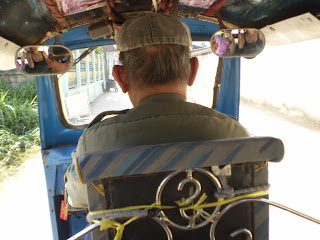I
know that blogged about Ross Perlin’s Intern
Nation before but after spending weeks interning in Shanghai, I have come
to the conclusion that I am what Ross Perlin would describe an Intern Queen.
My
reason for becoming such is simple; I chose to study things that interested me and not areas that had economic value. Being an Intern Queen maybe is the curse of the Arts Grad.
I
went through university being told that extracurricular activities (a.k.a
internships) were the key to getting a graduate job, especially if you were
doing Arts or wanted to get in to an industry that was particularly tough to
break into.
As
an Intern Queen, I’ve seen all kinds of internships: disasters, structured ones
where you learn a great deal, unstructured internships in distant lands that
are a whirlwind of experiences that challenge you personally and professionally
and, more recently, one that is a combination of most of the above.
I’ve
been stuck in a room on my own in the jungle with a boss whose only method of
communication was Skype messaging, despite being in the next room. Another was
everything that an internship should have been with interesting and challenging
work that gave me an insight in to what I was good at as well as an exposure to
the area that I was studying.
But
from my experience and from reading Ross Perlin’s book, I’m beginning to
understand that internships have value and not all internships have the same
currency in the job market. I am also aware now from reading Intern Nation that internships are also
quite unfair.
But
why do people need to do so many or focus on completing the more prestigious
ones in order to get a foot in the door of paid employment in the knowledge
economy?
Perlin
argues that the reason comes down to ‘“systematic overinvestment” and employers
upping the ante: increasingly it takes a prestigious internship or a string of
[great] internships, to put you over the top’ (2011, 132)
This
means that while doing several internships is a positive thing but don’t be
surprised when employers begin to make it necessary to have done bigger, better
and more prestigious internships to get hired.
The
most obvious factor that makes internships unfair is that in many cases you
either have to pay for the privilege or have to be willing to work for nothing during
your internship. Either way, you have to have the financial backing to be able
to participate.
I certainly wouldn't have been able to afford my current internship as an undergraduate and my parents wouldn't have paid for it either.
I certainly wouldn't have been able to afford my current internship as an undergraduate and my parents wouldn't have paid for it either.
But
not having participating in internships can have consequences and, as Perlin
argues, ‘Not having access to an
internship can be the kiss of death if you want to move up in the world’.
(2011, 165) It is especially true that not having done an internship can make
getting a job so much harder if you have your eyes on the hard-to-get-into
areas of the job market.
Perlin
quotes, David Graeber who points out ‘It has become a fact of life in the
United States that if you choose a career for any reason other than for the
salary, for the first year or two one will not be paid. Graeber points out that
in many professions – charitable work or literary criticism [even politics,
international relations, events and arts management, broadcasting, journalism, international
aid and development] for instance – “structures of exclusion” have excised for
a long time, “but in recent decades fences have become fortresses”’ (ibid). The
building of a fortress has come about from wealthy interns having the done the
right internships with the right organisations to allow them entry to this
fortress.
But
there is another group that also get easy access and this leads into another
level of inequality.
A
less obvious factor in the inequality among the citizens/“want-to-be citizens”
of Intern Nation is the rise of the what has many names but is essentially is
the same thing; “Brilliant Young Thing”, “Pretty Young Thing” and “Professional
Young Person”.
While
this clip is pure satire and completely over the top, we’ve all seen people
like this (without pettiness maybe) in the paper being celebrated for their for
latest accomplishment, being the public face/voice of “youth” through sitting
on every community, government and private business board available, or
participating in some high achievement programme.
When
it comes to finding a job post graduation, they have collected such an
impressive array of experiences and contacts with which no ordinary person can
compete. As a result, these Pretty Young Things are fast tracked into the internship
programmes that are the red carpet to these hard-to-get-into-professions.
The
very existence of these individuals perpetuates a winner-takes-all mentality and
our society’s obsession with “Personalities”.
It’s
not that these Brilliant Young Things are more qualified than anyone else or
necessarily more capable than others it is just that their contacts and public profile get their
application from the middle of the pile to being read. Either that or they received an
invitation by an employer to apply (along with everyone else) for a programme
knowing full well that they will be successful no matter who else applies. The influence of contacts shows that this
worries Perlin when he writes ‘Nepotism, cronyism and the lack of transparency
remains the order of the day in filling many internship potions, even as people
quietly admit that the situation is out of control’ (2011, 231)
Correct
me if I am wrong here but aren’t the whole point of internships meant to give
people practical experience and an opportunity to transition from education to
work or between sectors?
Now
internships seem to be awarded to those who are already fully prepared to gain work in
the knowledge economy rather than those need the assistance in making the
transition. The current system of
internships, as Perlin quotes ones of his interviewees, ‘enables those who have had some
enabling’. (2011, 102)
In
summing up, Ross Perlin writes in Intern
Nation ‘quietly and not-so quietly this “talent myth” has become an
underlying justification for massive and grown inequality, runaway executive
compensation a winner-takes-all economy and an intense focus on superstars’.
(2011, 233) I would love to say that things may change but I somehow doubt
that they will! Everyone who isn’t from an uber privileged (financially or socially)
background will just have to work smarter and harder to gain a place in the
knowledge economy.
Link
Perlin, Ross. Intern Nation: How to earn nothing and learn little in the brave new economy. (London and New York: Verso, 2011)
Link
Perlin, Ross. Intern Nation: How to earn nothing and learn little in the brave new economy. (London and New York: Verso, 2011)














.jpg)




